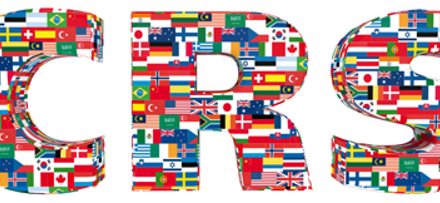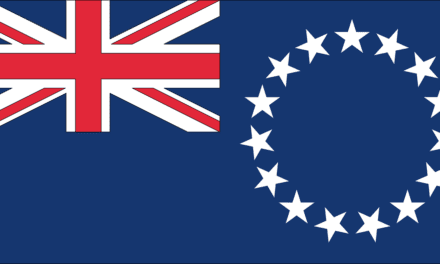9 POWERFUL METHODS YOU CAN USE NOW TO AVOID CFC RULES
Controlled Foreign Corporation (CFC rules) exist in all the major high tax countries. The only exception to this is Switzerland. Generally smaller countries don’t have CFC rules. But if you live in a high tax country like the USA, Canada or the UK knowing about CFC rules is essential. In fact it’s the most important aspect of your offshore strategy.
All high tax countries will say some version of “If you control an offshore company in a low tax or zero tax jurisdiction we want our share of the profits.”
The definition of control will vary from state to state from as low as 10% in the USA to as high as 60% in Argentina.
Owning an offshore company is many cases will give you more of a problem in high tax countries than just operating a normal local corporation. Of course there are other uses for offshore companies. They’re not used only to avoid taxes. Asset protection is perhaps the primary benefit for an offshore company.
Many people make the mistake of thinking they can form a corporation in a zero tax jurisdiction such as the BVI and funnel profits through that, while remaining resident in a high tax country. Unfortunately it’s not that simple because of the CFC rules.
- Move Your Legal Residence to a Country With No CFC Rules
The most straightforward strategy to avoid CFC rules is to move your main residence to a country that doesn’t have them.
While all the main high tax jurisdictions like the USA, UK and the EU have CFC rules most of the world does not.
If your main residence is in Monaco or The Cayman Islands or Panama you will not have to worry about how to avoid CFC rules as they don’t exist. In fact any territorial tax country is a viable place to establish residency to avoid CFC rules.
2. Do Not Legally Control The Offshore Company
This can be easier said than done. However, if you are not a director or a shareholder of the foreign company then it’s, by definition, not a CFC and it won’t be reportable under CFC rules.
If you had a Panama company with Panamanian directors and the shares were owned by a Cook Islands Trust it would be difficult to argue that it was a Controlled Foreign Corporation.
This kind of structure can be put in place to avoid CFC rules but it must be absolutely watertight to avoid attack by your home country government.
3. Have an Operating Company in a Low or Zero Tax Location
Most countries make exceptions for operating companies. The laws are primarily intended for controlled companies distributing passive income.
If the foreign company is operating a trading business with offices and employees it may not fall under CFC rules. For example if you own a factory through a foreign corporation in a Latin American country it wouldn’t be reportable under CFC rules.
4. Use a Low Tax Company in a White-listed Jurisdiction
Using a low tax Company in a white listed country can be a better strategy nowadays and it lets you fly below the radar of many tax departments.
Having a low tax company from Ireland or a UK LLP will work in some situations as both those jurisdictions are white-listed by other European jurisdictions.
They will not be subject to as much scrutiny as a company from Belize or Panama would be. It’s an example of onshore countries becoming the new offshore. I’d choose a structure in Ireland or Serbia over a corporation in the BVI to avoid CFC rules. Life will be much more straightforward.
Check out our article on Irish companies here.
5. Spread Shares in the Offshore Company Amongst Family Members
Most CFC rules stipulate a percentage of the shares of the offshore entity that you must control for it to come under CFC rules.
Most start at around 25%. Therefore if you had 5 family members owning 20% each you can legitimately avoid CFC rules in some jurisdictions.
It will depend on the individual circumstances and there can’t be any official nominee arrangement between the family members.
6. Freedom of Establishment Rules Within the EU
If you have a Company in the EU it’s perfectly legal to structure your affairs in the EU jurisdiction with the lowest tax burden.
Malta, Cyprus and Ireland are examples of small countries within the EU with lower tax rates.
There’s nothing to stop EU residents setting up companies in those jurisdictions or even re-locating an existing EU company to a lower tax jurisdiction.
7. For UK Residents if Profits in the CFC are Less than £50k
Her Majesty’s Revenue and Customs in the UK will not be interested in your offshore company if the annual profits are less than £50,0000 per year. With careful planning for your overseas structure it would be possible to keep the profits below this level. Excess profits can be diverted to other jurisdictions with licensing agreements and other strategies to lower profits in one jurisdiction and transfer them to another. These matters are complex and need to be considered on a case by case basis.
You can find out more about HMRC’s anti avoidance rules for CFC here
8. Avoid Being Resident in a Country With Strict CFC Rules
The following countries have the strictest CFC rules against any offshore company:
Argentina, Australia Brazil, Canada, China, Denmark, Egypt, Estonia, Finland, France, Germany, Greece, Hungary, Iceland, Israel, Italy, Japan, New Zealand, Norway, Portugal, Russia, South Africa, South Korea, Spain, Sweden, Turkey, the US, and the UK.
Some of those countries such as the US have CFC rules that will pull any overseas entity into the tax system. Others such as Argentina or Australia focus more on passive income from overseas entities..
9. Have a Trusted Family Member Establish Residency in a Tax Haven or Territorial Tax Country
If you don’t want to relocate yourself have a trusted family member do it for you. They can then legitimately hold shares and manage income from overseas entities without falling foul of the CFC rules. I have consulting clients who have relocated family members to countries such as Monaco or The Cayman Islands so that their family wealth can continue to compound tax free.
Of course the absolute best and optimal strategy to follow is to relocate yourself. Citizens of most countries can simply move to a new jurisdiction and they don’t have to pay taxes to their home country. After you leave and spend less than 6 months per year in your home country their taxes and CFC rules no longer apply to you.
If you have a business which is location independent or if you can make it location independent your wealth will compound much more quickly when you’re not forced to give a significant percentage of your income to the government.












